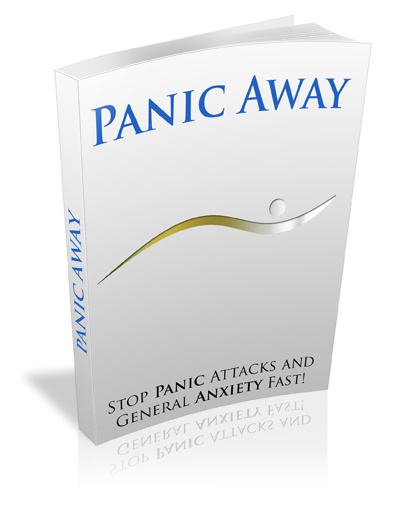Dear reader,
Have you ever felt overwhelmed by the pressures of life? The relentless demands, the constant juggling of responsibilities, the nagging voice of anxiety that seems to follow you everywhere? I know I have. It often feels like a never-ending battle, one that leaves us feeling drained, stressed, and desperate for relief.
Our Top Pick For Beating Panic Attacks

Stopping, and preventing, panic attacks is now even easier.
But what if I told you that there is a way to combat stress effectively? A simple practice that can bring calm, clarity, and a renewed sense of well-being into your life. That practice is mindfulness meditation.
Mindfulness meditation is not just a trend or a buzzword; it is a proven technique backed by scientific research. It involves bringing our attention to the present moment, without judgment or attachment. By cultivating mindfulness, we can break free from the grip of stress and find inner peace.
Join me on a journey of self-discovery as we explore seven mindfulness meditation practices that can help you combat stress effectively. From the power of mindful breathing to the importance of self-compassion and cultivating connection, each practice offers a unique pathway to stress relief.
Key Takeaways:
- Mindfulness meditation is a powerful tool for combating stress and improving well-being.
- Practicing mindful breathing can help activate the body's natural relaxation response.
- Self-compassion is key to treating ourselves with kindness and understanding during stressful times.
- Building genuine connections with others can provide support and reduce stress.
- Practicing compassion for others can lead to increased well-being and a sense of community.
The Power of Mindful Breathing
Mindful breathing is a powerful technique for stress relief. It activates the parasympathetic nervous system, which induces a calming response in the body.
One effective breathing exercise involves inhaling for a count of four, holding the breath, and exhaling for twice as long. This activates the parasympathetic nervous system, reducing heart rate and blood pressure.
Mindful breathing helps regulate emotions and can provide a sense of calm and relaxation.
Practicing Self-Compassion for Stress Relief
When it comes to managing stress, adopting an attitude of self-compassion can be a powerful tool. Self-compassion involves being mindful of our emotions and treating ourselves with kindness and understanding, even in times of difficulty. It is an essential practice that can help alleviate anxiety and promote overall well-being.
Often, we are our own harshest critics, putting excessive pressure on ourselves to perform or achieve certain standards. This self-critical mindset can contribute to increased stress levels. By practicing self-compassion, we can observe and notice our emotions without judgment and self-criticism, promoting a sense of calm and self-care.
Self-compassion involves acknowledging that everyone makes mistakes and experiences challenges—it's simply part of being human. Instead of berating ourselves for perceived shortcomings, we can choose to offer ourselves kindness and understanding. This compassionate approach allows us to navigate stress with greater resilience and a gentle attitude towards ourselves.
One way to cultivate self-compassion is through mindfulness exercises that focus on self-care and acceptance. Engaging in activities that bring us joy, such as taking a relaxing bath, going for a walk in nature, or engaging in a hobby, can help us reconnect with ourselves and foster self-compassion.
| Ways to Practice Self-Compassion |
|---|
| 1. Practice self-care activities, such as taking a warm bath or engaging in a hobby. |
| 2. Engage in positive self-talk and affirmations to counter self-criticism. |
| 3. Reflect on and acknowledge your accomplishments and strengths. |
| 4. Seek support from loved ones, friends, or a professional counselor. |
| 5. Practice mindfulness meditation to cultivate self-awareness and acceptance. |
By practicing self-compassion, we can develop a kinder and more compassionate relationship with ourselves. This not only helps to alleviate stress but also enhances our overall well-being and resilience in the face of life's challenges.

Cultivating Connection for Stress Relief
Genuine connection with others can be a powerful source of stress relief. When we are fully present and attentive in our interactions, we can feel more connected and supported, which can help reduce stress. By taking care of our own well-being through practices like breathing exercises and self-compassion, we can turn more attention outward, fostering deeper connections with others.
Research has shown that social connection plays a crucial role in stress reduction. Spending quality time with loved ones, engaging in meaningful conversations, and participating in group activities can increase feelings of belonging and support. By nurturing these connections, we create a positive social network that provides a buffer against stress and promotes overall well-being.
Building and maintaining connections with others requires mindfulness and intention. Here are some effective strategies to help cultivate connection for stress relief:
- Practice active listening: Pay close attention to what others are saying and reflect on their words before responding. This demonstrates respect and fosters a deeper understanding.
- Show empathy and compassion: Put yourself in others' shoes and try to understand their perspective. Offer support and validation to promote a sense of connection and trust.
- Engage in meaningful conversations: Discuss topics of mutual interest, share stories, and ask open-ended questions to deepen the conversation and create a sense of connection.
- Participate in group activities: Join clubs, volunteering organizations, or hobby groups where you can connect with like-minded individuals. Engaging in shared activities promotes a sense of belonging and reduces stress.
- Practice gratitude: Express appreciation for the people in your life and the meaningful connections you have. Gratitude cultivates positive emotions and strengthens relationships.
Remember, cultivating connection is a two-way street. It requires both giving and receiving support. By nurturing relationships and prioritizing meaningful connections, we can create a strong support system that helps us effectively cope with stress.
“Connection is a fundamental human need that promotes well-being and reduces stress. Prioritizing relationships and fostering meaningful connections can have a profound impact on our overall health and happiness.”
So, take a moment to reach out to a friend, spend quality time with your loved ones, or join a community that aligns with your interests. Embrace the power of genuine connection for stress relief.
Practicing Compassion for Others
In our journey of stress relief, another powerful practice is to extend compassion and kindness to others. By displaying altruism and empathy, we not only contribute to the well-being of others but also experience a significant reduction in our own stress levels. Small acts of kindness have the ability to create a ripple effect, fostering stronger connections and a sense of community.
When we shift our focus towards the well-being of others, we experience a shift in our mindset and emotions. The act of helping and supporting others cultivates positive emotions such as joy, gratitude, and fulfillment. These emotions have a profound impact on our own stress levels, promoting a sense of ease and overall well-being.
Practicing compassion for others requires mindful awareness and empathy. It involves actively listening, offering support, and demonstrating understanding. By being present in the moment and acknowledging the challenges faced by others, we strengthen our ability to connect with them on a deeper level.
“When we extend a helping hand to others, we not only uplift their spirits but also lighten our own burdens.”
Compassion can be expressed in various ways, such as volunteering for a charitable organization, assisting a friend in need, or simply offering a kind word to someone going through a difficult time. These acts of compassion not only alleviate stress but also foster a stronger sense of community and connectedness.
By practicing compassion for others, we create a positive cycle of support and well-being. The act of giving not only benefits those we help but also enhances our own mental and emotional resilience in the face of stress.
Remember, small acts of kindness can have a significant impact on both the recipient and ourselves. By extending compassion to others, we foster a sense of connectedness and contribute to a more compassionate and stress-free world.
The Power of Compassionate Acts
Research has shown that acts of compassion have a transformative effect on individuals experiencing stress. These acts stimulate the release of oxytocin, often referred to as the “love hormone.” Oxytocin promotes feelings of trust, connection, and well-being, while also counteracting the stress hormone cortisol.
The Impact of Stress on Mental and Physical Health
Stress can have detrimental effects on both mental and physical health. Prolonged stress can lead to changes in the brain, impacting areas responsible for processing threatening situations. Chronic stress has been linked to various health problems such as obesity, heart disease, and weakened immune systems. Recognizing the negative impacts of stress on our overall well-being emphasizes the importance of stress management techniques.

The Role of Meditation and Mindfulness in Stress Relief
Meditation and mindfulness are powerful tools for stress relief. Regular meditation practice can lead to changes in the brain, reducing the size of the amygdala, the brain's emotional processing center. This results in a less reactive stress response. Mindfulness meditation promotes present-moment awareness, acceptance, and non-judgment, enabling individuals to manage stress more effectively.
Mindfulness for Anxiety Relief
One of the key benefits of mindfulness meditation is its effectiveness in relieving anxiety. By focusing on the present moment and accepting it without judgment, individuals can reduce anxiety and find a sense of calm. Mindfulness allows us to observe anxious thoughts and feelings without getting caught up in them, helping to break the cycle of anxiety and promote relaxation.
Meditation Apps for Stress Management
In today's digital age, meditation apps have become popular tools for stress management. These apps provide guided meditations that can be accessed anytime, anywhere. With a wide variety of meditation styles and durations to choose from, these apps make it convenient for individuals to incorporate meditation into their daily lives. Some popular meditation apps include Calm, Headspace, and Insight Timer.
Other Mindfulness Meditation Practices for Stress Relief
In addition to mindful breathing, there are numerous other meditation practices that can help relieve stress and promote a state of calm and relaxation. These practices offer unique approaches to cultivating mindfulness and reducing stress levels, allowing individuals to find the techniques that resonate with them best. By incorporating these practices into your stress management routine, you can enhance your overall well-being and find greater balance in your life.
Meditative Walking
Meditative walking involves combining the principles of mindfulness with the act of walking. It encourages you to be fully present in each step, allowing you to observe the sensations of your feet touching the ground and the movement of your body. Engaging in meditative walking can help calm the mind, reduce stress, and promote a sense of inner peace and clarity.
Drinking a Cup of Tea Mindfully
Drinking a cup of tea mindfully is a simple yet powerful meditation practice. Instead of rushing through your tea break, take the time to fully experience the process of making and drinking tea. Notice the aroma, the warmth of the cup in your hands, and the taste with each sip. This practice allows you to slow down, savor the present moment, and find relaxation amidst daily routines.
Connecting with Nature
Spending time in nature can be a therapeutic and rejuvenating experience. Take a mindful walk in a park or forest, listen to the sounds of birds chirping and leaves rustling, and observe the beauty of the natural surroundings. Connecting with nature helps shift the focus from the stressors of daily life and cultivates a sense of peace, grounding, and gratitude.
Gazing Meditation
Gazing meditation involves fixing your gaze on a specific object or point, such as a candle flame, a flower, or a peaceful landscape. Allow your attention to rest on the object without judgment or analysis, simply observing its presence and taking in its details. This practice can help calm the mind, improve focus, and induce a state of relaxation.
Guided Meditation
Guided meditation involves listening to a recorded voice guiding you through a meditation practice. There are various meditation apps available that provide guided meditations, specifically designed for stress management. These apps offer a wide range of themes and techniques, allowing you to choose guided meditations that resonate with your specific needs and preferences. Guided meditation provides structure and support, making it an excellent choice for beginners and those seeking guidance in their meditation practice.
Stretching
Incorporating stretching into your mindfulness routine can help release tension in the body and ease stress. Take a moment to stretch your muscles gently, focusing on the sensations and movements of your body. Stretching not only enhances physical flexibility but also promotes a sense of relaxation and well-being.
By exploring these various mindfulness meditation practices, you can find the techniques that work best for you in relieving stress and promoting a sense of well-being. Whether it's meditative walking, enjoying a cup of tea mindfully, connecting with nature, practicing gazing meditation, using guided meditation apps, or incorporating stretching into your routine, each practice offers a unique path to reducing stress and cultivating mindfulness.

Conclusion
Mindfulness meditation practices offer valuable techniques for managing and reducing stress. By incorporating practices such as mindful breathing, self-compassion, fostering connection, and practicing compassion for others, we can significantly improve our overall well-being. These practices enable us to find inner calm, enhance emotional resilience, and effectively navigate stressful situations.
Engaging in meditation and mindfulness techniques on a regular basis allows us to cultivate a more balanced and fulfilling life. By embracing mindfulness, we can develop a heightened sense of self-awareness, reduce anxiety, and increase our ability to manage stress effectively.
Meditation apps provide a convenient and accessible way to guide us through mindfulness practices, making it easier to integrate them into our daily routines. These apps offer a wide range of resources, including mindful breathing exercises, guided meditations, and stress reduction techniques.
By dedicating time and effort to mindfulness meditation practices, we empower ourselves with the tools and mindset necessary to overcome stress and embrace a more peaceful and harmonious existence. Embracing mindfulness becomes a lifelong journey towards improved mental and physical well-being, allowing us to lead happier, healthier lives.
FAQ
How can mindfulness meditation practices help combat stress?
Mindfulness meditation practices increase stress resilience and effective coping. They lead to lower levels of perceived stress, anxiety, and depression, improved mood, and a sense of improved well-being.
What is the power of mindful breathing in stress relief?
Mindful breathing is a powerful technique that activates the parasympathetic nervous system, inducing a calming response in the body. It helps regulate emotions, reduces heart rate and blood pressure, and provides a sense of calm and relaxation.
How can practicing self-compassion help with stress relief?
Practicing self-compassion involves being mindful of your emotions and treating yourself with kindness and understanding. It allows you to observe and notice your emotions without feeding the fire of stress, promoting a sense of calm and self-care.
How does cultivating connection contribute to stress relief?
Genuine connection with others can reduce stress by making us feel more connected and supported. By being fully present and attentive in our interactions, we foster deeper connections, which can help reduce stress.
How does practicing compassion for others help alleviate stress?
When we extend help and support to others, we experience a positive shift in our state of mind, leading to increased well-being and reduced stress. Acts of kindness create a ripple effect that fosters a stronger sense of connection and community.
What are the impacts of stress on mental and physical health?
Prolonged stress can lead to changes in the brain, impacting areas responsible for processing threatening situations. It has been linked to various health problems such as obesity, heart disease, and weakened immune systems.
How do meditation and mindfulness help with stress relief?
Regular meditation practice leads to changes in the brain, reducing the size of the brain's emotional processing center and resulting in a less reactive stress response. Mindfulness meditation promotes present-moment awareness and acceptance, enabling effective stress management.
What are some other mindfulness meditation practices for stress relief?
In addition to mindful breathing, other practices like meditative walking, drinking tea mindfully, connecting with nature, gazing meditation, guided meditation, and stretching can help cultivate mindfulness and reduce stress.
How can mindfulness meditation practices be incorporated into daily life?
Mindfulness meditation practices are valuable tools for stress reduction and improved well-being. By incorporating techniques like mindful breathing and self-compassion into daily life, individuals can effectively manage stress and cultivate a more balanced and fulfilling life. Meditation apps can provide helpful guidance along the journey of stress management.


